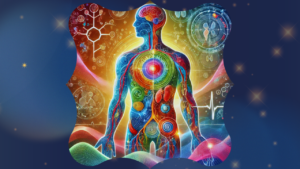In the first part of this discussion, we explored the notion that true health education must go beyond dry, rote-learned information. It must be delivered in a way that young people can meaningfully apply to their lived experience – transforming knowledge into practical wisdom.
The challenge today isn’t a lack of health information for young people. It’s that this information alone rarely transforms habits, mindsets, or lifelong outcomes, simply because students do not feel they can relate to it. In GCSE Biology for instance, we are taught about the respiration pathway – how oxygen travels through the alveoli, into the bloodstream, and fuels cellular processes. But unless one’s future career lies in medicine or human biology, this knowledge remains inert, memorised only to pass an exam. What in the respiration pathway can we actually use in our everyday practice, to consciously influence health through the simple, yet profound, act of breathing?
Learning ought to cultivate competence, which can be understood as the practical ability to notice, understand, and respond, in the capacity of our bodies’ needs, in real time.
Competence emerges when learning is not static, but applied, alive, and embodied. It is no coincidence that studies have shown that memory retention improves dramatically when mnemonics are employed (typically between 70-90%). Mnemonics – patterns of letters, ideas or associations that serve as cognitive anchors – offer more than just a memory trick; they create an emotional entanglement that invites the learner to engage actively with the material. Take, for example,’PEDMAS’ or ‘Please Excuse My Dear Aunt Sally’, a common aid for remembering the order of operations in mathematics. Crucially, ‘Sally’ could just as easily become ‘Susan’, ‘Sage’, ‘Scarlett’ or ‘Sophie’ depending on which name evokes a stronger emotional response for the learner. This emotional resonance strengthens recall, deepens engagement, and personalises the learning process.
Similarly, when it comes to health education, young people must move beyond simply knowing about hydration, nutrition, stress management, emotional regulation and so on. They must be guided in a way for them to be able to experience firsthandhow these facets directly affect and shape their own energy, resilience, mood, stamina and cognitive performance.
For decades now, it has been almost an open secret that the true goal of education should be to embed an intuitive, living relationship with subjects – one that cultivates curiosity, excitement and autonomy far beyond the classroom.
So why, then, have we seen so little movement in this direction within statutory curriculums?
At Vibrant Health Education (VHE), we are developing a health-building curriculum that focuses on precisely this issue. Our approach is rooted in interactive, integrated and experiential learning, empowering students to:
✔️Decode their body’s signals: Recognising when thirst, tiredness, irritability, or lack of focus are early biological messages – not just random feelings.
✔️ Connect habits to outcomes: Noticing how sleep, screen time, movement, breathing patterns, food quality, and emotional states directly impact their vitality, concentration, and wellbeing.
✔️ Personalise their strategies: Learning practical, adaptable tools to regulate themselves throughout different challenges, in the context of bioindividuality – from exam stress to social struggles to everyday low energy moments.
✔️ Develop a sense of agency: Instead of passively waiting for problems to worsen or relying solely on external authority, students develop confidence in managing simple, health-building steps, proactively.
Why This Matters
Somewhere along the way, we stopped asking what young people needto thrive – and started measuring only what they can memorise.
The body adapts. The mind adapts. What persists tends to feel normal– as Carl Jung’s doctrine attests. Yet without the skills to self-regulate, young people are left adapting to stressors that should never have been normalised in the first place.
Mental health challenges, stress-related illnesses and lifestyle-driven diseases are rising among young people. Early self-regulation and resilience skills are no longer a luxury – they are essential life foundations.
Cognitive Science reminds us: that real behavioural change is not born from passive information alone, but from lived experience, consistent practice, and emotional engagement.
Educational research increasingly shows: when students feel empowered in one area of life, like health management, that agency tends to ripple across other domains, such as academic performance, self-esteem, relationships, and life-affirming choices.
Societal resilience demands: a generation who are literate in their own biology, attuned to maintaining balance, and capable of making informed, autonomous health choices in an increasingly complex world.
At Vibrant Health Education CIC, we’re committed to helping shape this reality.
We envision a future where students are not only aware of “health facts” but are competent, confident stewards of their own bodies, minds, and emotions.
Because health is not static. It’s dynamic. It’s not just something we know; it’s something we live.
That’s why we call it ‘applied health-building’ or ‘applied wellbeing’.
If you’re passionate about helping young people thrive, let’s connect. We welcome collaborations with teachers, educational leaders, youth organisations, researchers, and health advocates who share this vision.
Together, we can equip the next generation to build resilience from within.
in Health,
#VHEdu❤️




